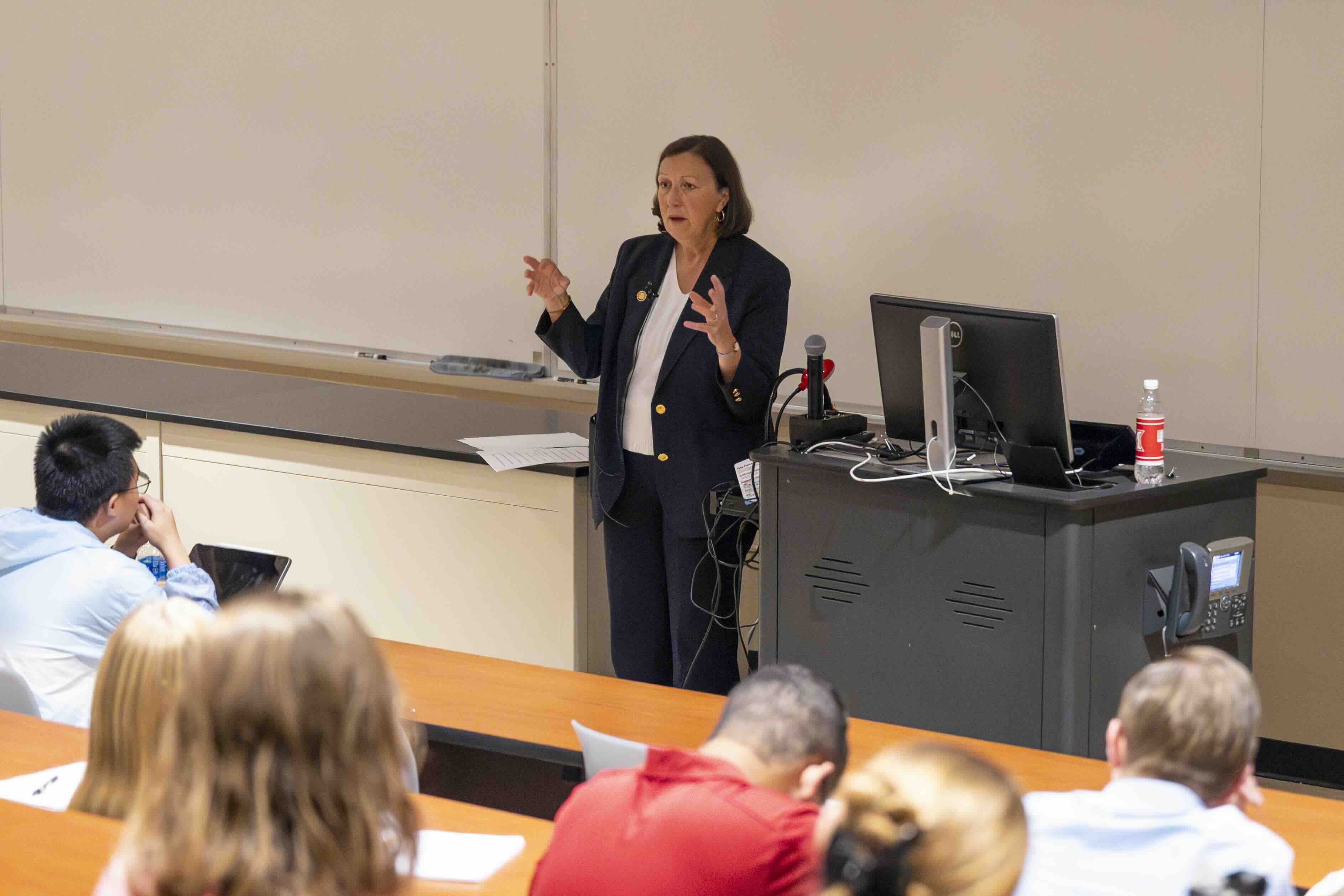Justice Jennifer Brunner speaks on democracy and law
‘Democracy must be balanced by rule of law. Without the rule of law, you can be at risk of things tipping over.’

Justice Jennifer Brunner speaks on democracy and law
Ohio Supreme Court Justice Jennifer Brunner ’78 spoke on the balance between democracy and the rule of law Sept. 17 at Miami University’s O’Hara Lecture on Law and Politics, part of the University’s annual Citizenship and Democracy Week.
Brunner, currently the only Democrat on the Ohio Supreme Court and a former Ohio Secretary of State, spoke openly about the relationship between democracy and the rule of law, her career in public service, and the challenges facing civic life today.
“Democracy and rule of law go hand in hand,” Brunner said. She warned that democracy without the balance of law risks becoming “tyranny of the majority,” while law without democracy loses legitimacy and citizen trust.
Drawing on the Bill of Rights, Brunner reminded students that freedoms such as speech, assembly, and due process are essential safeguards against government overreach. She said the United States’ strong protection of speech ultimately fosters an individualistic society that can be both challenging and resilient.
“The antidote to bad speech is more speech, not censorship,” she said.
Students attending the lecture said they found her remarks informative and inspiring. Ayaan Rizvi, a third-year law student from Christ University in Delhi, India, said he was surprised to learn that Ohio judges are elected rather than appointed.
“The fact that she integrated with a Republican judge was interesting,” he said. “In India, judges are appointed, so it was surprising to hear how political ideology can intersect with judicial elections in the U.S.” Rizvi said the lecture helped him better understand the rule of law and democracy.
Several other students shared similar views. “Brunner’s passion for public service stood out," said Abigail Lust, a sophomore majoring in Political Science and Psychology.
Junior Political Science major Lealya Simpson and senior Political Science major Mitchell Masters said they attended to learn more about the Ohio Supreme Court and how law affects everyday life.
First-year student Caroline Akers, majoring in Political Science, said she was drawn to the lecture as someone interested in law but is not sure yet what type.
Brunner also shared personal insights, describing her upbringing on a farm in northwest Ohio, her life in Powell with her husband, two dogs, and two cats, and her commitment to sustainability.
She reflected on the challenges of public service but stated that the work was worth it. “The people I help may help others in their future,” she said.
Brunner urged students to begin with the tools and opportunities already within reach and to take meaningful action in their own communities. “Start where you are, use what you have, and do what you can,” she said.
The O’Hara Lecture was hosted by the Menard Family Center for Democracy and the Department of Political Science.
"We in the Menard Family Center for Democracy are so pleased to have hosted Justice Brunner here in Oxford during Citizenship and Democracy Week,” said John Forren, executive director. “Especially during a time of such deep polarization in our political discourse, Justice Brunner's talk reminded us quite forcefully that what we hold in common – our shared traditions of democracy, respect for individual freedom and belief in the rule of law – are far more important than any of the particular issues that may divide us."